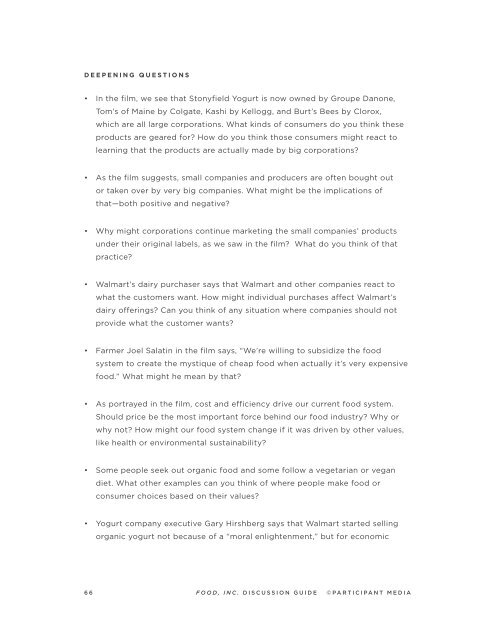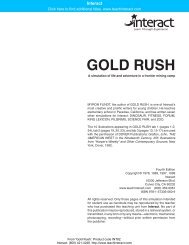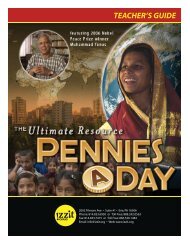Food, Inc. Discussion Guide - TakePart
Food, Inc. Discussion Guide - TakePart
Food, Inc. Discussion Guide - TakePart
- No tags were found...
You also want an ePaper? Increase the reach of your titles
YUMPU automatically turns print PDFs into web optimized ePapers that Google loves.
D e e p e n i n g Q u e s t i o n s• In the film, we see that Stonyfield Yogurt is now owned by Groupe Danone,Tom’s of Maine by Colgate, Kashi by Kellogg, and Burt’s Bees by Clorox,which are all large corporations. What kinds of consumers do you think theseproducts are geared for? How do you think those consumers might react tolearning that the products are actually made by big corporations?• As the film suggests, small companies and producers are often bought outor taken over by very big companies. What might be the implications ofthat—both positive and negative?• Why might corporations continue marketing the small companies’ productsunder their original labels, as we saw in the film? What do you think of thatpractice?• Walmart’s dairy purchaser says that Walmart and other companies react towhat the customers want. How might individual purchases affect Walmart’sdairy offerings? Can you think of any situation where companies should notprovide what the customer wants?• Farmer Joel Salatin in the film says, “We’re willing to subsidize the foodsystem to create the mystique of cheap food when actually it’s very expensivefood.” What might he mean by that?• As portrayed in the film, cost and efficiency drive our current food system.Should price be the most important force behind our food industry? Why orwhy not? How might our food system change if it was driven by other values,like health or environmental sustainability?• Some people seek out organic food and some follow a vegetarian or vegandiet. What other examples can you think of where people make food orconsumer choices based on their values?• Yogurt company executive Gary Hirshberg says that Walmart started sellingorganic yogurt not because of a “moral enlightenment,” but for economic6 6F o o d , I n c . D I S C U S S I O N G U I D E© P a r t i c i p a n t M e d i a
















